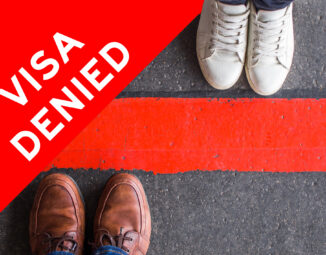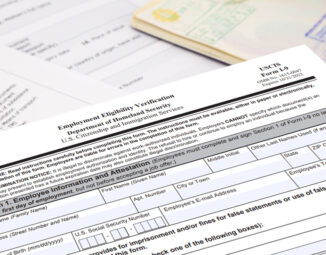Religious Workers Redeemed (Sort of) by New Immigration Policy
On July 14, 2015 U.S. Citizenship and Immigration Services (USCIS) issued a Policy Memorandum stating that it will no longer deny Special Immigrant Religious Worker petitions due to the lawful status provisions found in federal regulations. Under the regulations, work experience gained in the U.S. for the religious worker category had to be obtained while an immigrant was in lawful status, according to the agency.
U.S. immigration laws governing “Special Immigrant Religious Workers” allow persons in religious vocations and occupations to obtain permanent residence for the purpose of performing full time religious work. If the foreign religious worker is currently in the United States there is a two-step process for doing this: First he or she must submit an I-360 Special Immigrant Religious Worker petition. If this is approved then he or she must then submit an I-485 Application to Register Permanent Residence or Adjust Status. Until now, USCIS has interpreted federal regulations regarding eligibility for I-360 Special Immigrant Religious Worker status to require that the applicant must have been working in a religious occupation either abroad or in lawful immigration status in the United States, continuously for at least 2 years immediately preceding the filing of a petition with USCIS.
However, in April of this year the U.S. Court of Appeals for the Third Circuit, in Shalom Pentecostal Church v. Acting Secretary DHS, 783 F.3d 156 (3d Cir. 2015), found the regulatory requirements that qualifying work experience gained in the United States must have been acquired in lawful status to be beyond the Department’s legal authority (“ultra vires”). The court found that the statute was clear and unambiguous and that the regulation was inconsistent with the statute, which defines a special immigrant religious worker as an “immigrant” who has been “carrying on such vocation, professional work, or other work continuously for at least the two-year period” preceding the application. The statute does not say that the qualifying work experience gained in the United States must have been acquired in lawful status.
The Third Circuit’s decision in Shalom Pentecostal Church turns on a legal analysis regarding Congressional intent and the statutory and regulatory schemes that form the body of U.S. immigration law. The practical take away for our readers is the announcement in the July 14th Policy Memorandum in which USCIS said that it “will no longer require that the qualifying religious work experience for the two-year period preceding submission of a … special immigrant religious worker petition be acquired in lawful immigration status if gained in the United States.” USCIS will also remove the lawful status work requirements from the regulations at issue, according to the memo.
This announcement aligns the USCIS with a growing number of Federal courts reaching the same conclusion. It also accords with common sense: It is not uncommon for a religious worker in non-immigrant status to change positions, receive a transfer, or even lose a job if his or her congregation folds or merges with another congregation. Under the now defunct regulation a nonimmigrant religious worker could fall out of status if one of these events occurs and a new petition has not already been filed. The minister could find him or herself in violation of the “lawful immigrant status” provision of the regulation and thus ineligible for Special Immigrant Religious Worker status simply because his or her religious organization was delayed in filing a new petition.
The new USCIS Policy Memorandum will now instruct agency adjudicators to no longer require that the two years of religious work gained in the United States to have been acquired in lawful status in order to be eligible for Special Immigrant Religious Worker status. However, the agency is careful to note that Special Immigrant Religious Workers whose qualifying work experience was not obtained in lawful immigration status may be ineligible for permanent residence. This is because the application for permanent residence (the I-485 step mentioned above) is a separate process and is subject to a different set of regulations, among which includes the maintenance of lawful status throughout an immigrant’s stay in the United States.
Thus, the July 14th USCIS Policy Memorandum has not abolished the requirement that religious workers maintain lawful status while in the United States. Religious workers in valid R-1 or other nonimmigrant status should always maintain lawful status while in the United States and be careful not to violate the terms of their visa. Likewise, religious organizations that sponsor foreign religious workers must be attentive in filing renewal or extension petitions for religious workers and otherwise abide by the terms of the visa.
Immigration law is extraordinarily complex and HRLegalist recommends, as always, that religious workers and religious organizations consult with an experienced attorney before proceeding with a religious worker petition or any immigration matter.



